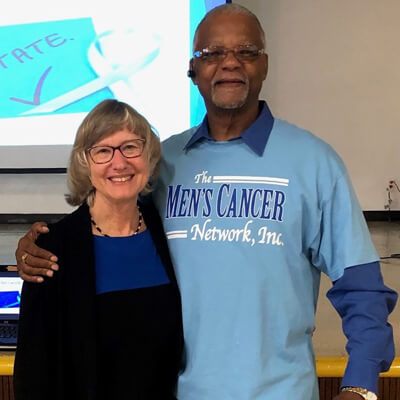Health
A Milestone in Prostate Cancer Research: The Inspiring Success of the RESPOND Study
In a monumental stride toward understanding and combating prostate cancer disparities, the RESPOND study has achieved a landmark victory by recruiting the largest cohort of African American men for prostate cancer research. This comes at a time when the need for such studies is more critical than ever, particularly given the disproportionate impact prostate cancer has on African American men.
Chasing Better Outcomes Amidst Challenges
Statistics reveal daunting disparities: African American men suffer from higher rates of prostate cancer with earlier onset and twice the mortality rate compared to other racial groups. Spearheaded by Dr. Christopher Haiman, a genetic epidemiologist at the University of Southern California (USC), the RESPOND study (Research on Prostate Cancer in Men of African Ancestry: Defining the Roles of Genetics, Tumor Markers, and Social Stress) has made remarkable strides in recruiting over 12,600 volunteers, far surpassing its initial goals.

This success didn’t come easy, especially as the study’s recruitment phase coincided with the dual upheavals of the COVID-19 pandemic and a national reckoning with racial injustice under the Black Lives Matter movement. Nevertheless, the determination and innovative approaches employed by the RESPOND team, including using sophisticated tools like genome-wide genotyping and next-generation sequencing, have not only kept the study on track but also enriched its potential outcomes.
Understanding the Layers: From Genetics to Social Stress
The broad, holistic design of RESPOND allows examination of various factors potentially contributing to the stark disparities seen in prostate cancer outcomes among African American men. Dr. Haiman pointed out the use of geospatial information systems (GIS) to scrutinize the impact of environmental and social stresses on these men. Also, the study is delving into the roles of structural factors such as residential redlining, which historically denied essential services and opportunities based on racial composition of neighborhoods, thus potentially contributing to health disparities.
The Power of Collaboration and Community Engagement
The success of RESPOND owes much to Dr. Ann Hamilton, who co-leads the recruitment efforts drawing from her extensive background in epidemiological studies. Their team’s strategy involved direct engagement with the community, highlighting not only the immediate benefits of participation but also the long-term impacts for future generations. Collaborations with advocacy groups and leveraging community trust were also key to addressing and overcoming the skepticism often associated with participation in medical research among African American communities.

The Road Ahead: Data Analysis and Future Research
As RESPond shifts from recruitment to data analysis, the possibilities are promising. Dr. Haiman envisions a series of future studies that could look into treatment types and their effects on survival rates, the use of AI in detecting tumor signatures, and genetic and lifestyle factors contributing to prostate cancer risks among African American men.
Each step forward not only brings us closer to understanding the complex interplay of factors contributing to cancer disparities but also underscores the crucial need for tailored medical research that respects and responds to the unique needs of diverse populations.
A Beacon of Hope
RESPOND stands as a beacon of hope, not just for those battling prostate and other forms of cancers but for the medical research community at large. It exemplifies how perseverance, innovation, and community engagement can come together to pave the way for groundbreaking advancements in health and medicine.
The thorough engagement of over 12,600 African American men in this significant study not only marks a historic achievement but also sets the stage for profound impacts on public health policies and future research methodologies. Through their dedication, the RESPOND team is creating a legacy that will benefit many generations to come, truly embodying the ethos of doing ‘what is needed for future generations’.
A Moment of Reflection
As we move forward, it is crucial to reflect on the lessons learned from the RESPOND study – lessons about resilience, the power of community, and the imperative to continually bridge gaps in healthcare disparities. The journey of RESPOND is far from over, but its impacts will resonate for years to, shaping the contours of minority health research and policy.
The journey towards equitable health outcomes continues, and thanks to initiatives like RESPOND, we are another step closer to a future where health disparities are no longer a barrier to living long, healthy lives.
RESPOND study
Support & Further Reading
For further details on the RESPOND study and to support this critical research, please visit RESPOND Study Website. Together, we can make a difference in the lives of millions.
Our Lifestyle section on STM Daily News is a hub of inspiration and practical information, offering a range of articles that touch on various aspects of daily life. From tips on family finances to guides for maintaining health and wellness, we strive to empower our readers with knowledge and resources to enhance their lifestyles. Whether you’re seeking outdoor activity ideas, fashion trends, or travel recommendations, our lifestyle section has got you covered. Visit us today at https://stmdailynews.com/category/lifestyle/ and embark on a journey of discovery and self-improvement.